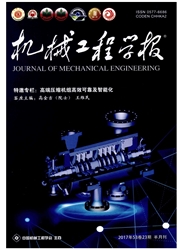

 中文摘要:
中文摘要:
由于需要在统一的软硬件配置下满足各类场景的工作要求,因此具有开放性的智能驾驶系统对于地面无人平台而言至关重要。全面介绍参加2011中国智能车未来挑战赛的北京理工大学BIT-III智能驾驶系统。该系统具有两方面的突出特点:设计具备纵横向规划能力的局部路径规划算法并将其作为系统核心功能,从底层实现安全、平顺和稳定的自主驾驶;围绕路径规划的需求,根据输出模态对环境感知功能进行分类,便于融合不同传感器的信息。比赛和测试结果表明,BIT-III具有简单城市环境下全无人自主驾驶的能力,而开放式的系统设计使其能够在保证已有功能的基础上进化式地提高智能化水平,满足更为复杂的工作要求。
 英文摘要:
英文摘要:
System design is of great importance for intelligent vehicle which is aimed at driving in diverse senarios under specific hardware and software configuration. The entry of Beij.ing Institute of Technology in the 2011 Intelligent Vehicle Future Challenge (11 'FC) - BIT-III is presented. The open design of BIT-III's autonomous driving system reflects in two aspects. Safety and stability in driving are guaranteed even when driving in unknown and complex environment by embedding them in the deliberately designed local motion planner. Environmental sensing components are virtualized and fused according to their output mode, which realizes the modularization of the system and considerably simplifies the extension of system functions. The performance of BIT-III in the 11 'FC implied that the system is able to drive autonomously in simplified urban environments and is ready to extend functions for more complicated scenarios.
 同期刊论文项目
同期刊论文项目
 同项目期刊论文
同项目期刊论文
 期刊信息
期刊信息
